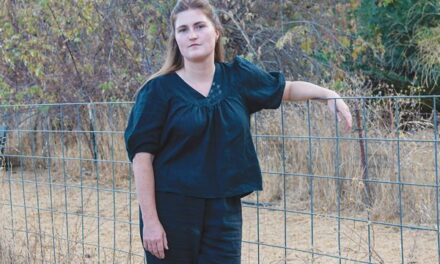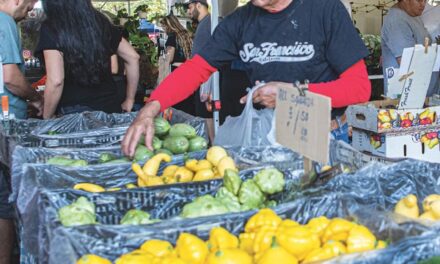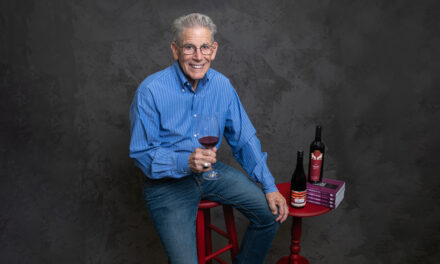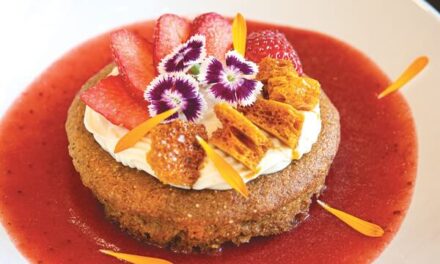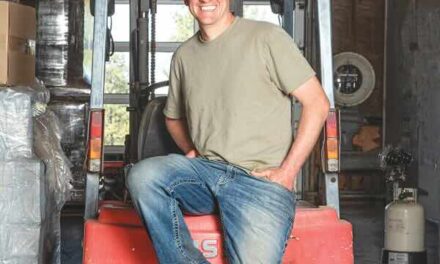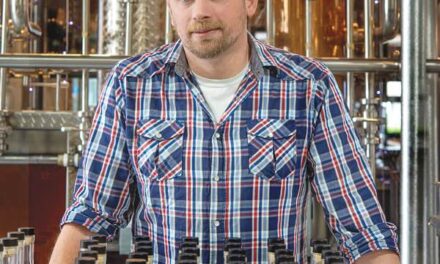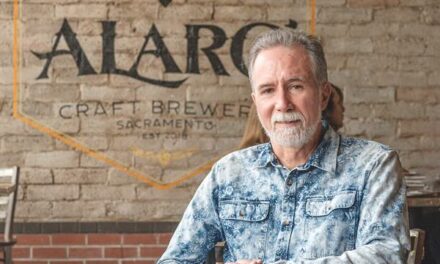Drink Up
Local cider delivers nutrition, taste and history
By Gabrielle Myers
March 2023
From an acidic kick to the warm taste of pears and apples, each sip of cider reveals the history and bounty of local agriculture.
Hemly Cider offers organic, unfiltered, flash-pasteurized nourishment in every can. No concentrates or additives. Sarah Hemly, founder and president, adds fresh juices of cherry, kiwi, Meyer lemon and mandarin orange after pasteurization. When she finishes, flavors of each fruit step forward.
Pear trees take up to eight years to produce. Hemly uses fruit from Courtland pear and apple trees dating from 1860. The land was bought by a relative of Sarah’s husband Michael Hemly for $600 in 1850. The cider company began in 2015. The family has farmed and nurtured this delta land for six generations.
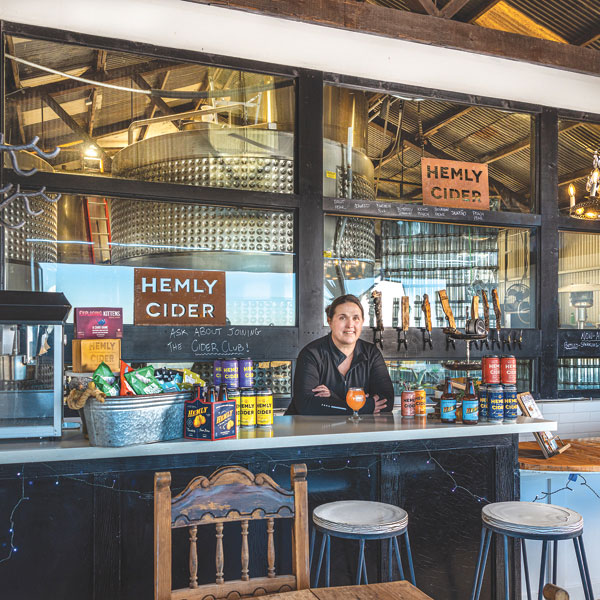
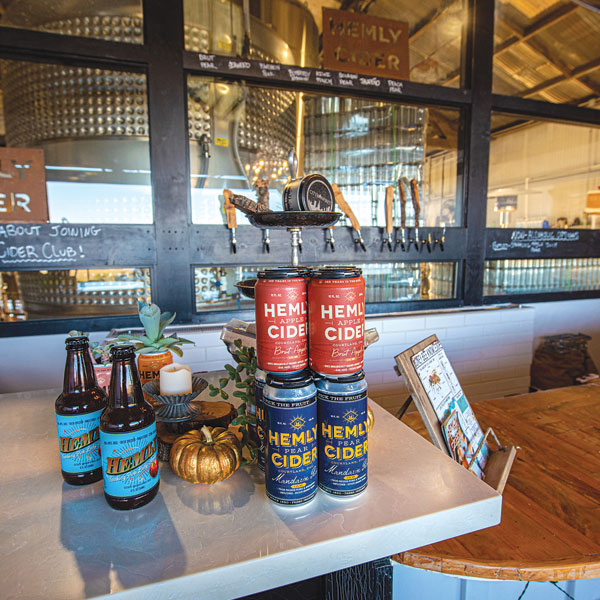
Bosc and Bartlett pear and Pink Lady and Granny Smith apple trees twist their trunks out of land 5 feet above the water table on wintry days. Proximity to water and access to fertile soil deliver luscious and distinctive fruit.
On my visit to the orchard, Sarah Hemly tells me her approach to cider making: “Let the quality of the fruit speak for itself. Don’t mess with it. Don’t lie to people. Put good things in the bottle. It’s the right path to take for the customer and the product. Make it as simple as you can.”
Hemly uses as much local fruit as possible to provide a wide range of cider varieties. When local farmers have excess fruit, Hemly creates new cider combinations by adding fresh juice.
One beautiful aspect of cider is you can use imperfect fruit that many grocery store or farmers market customers might reject. These fruit seconds have the flavor and health benefits of perfect fruit. Using them in cider helps local farmers maintain their operations and turn deliciousness into a beverage we can all enjoy.
Hemly has been the largest organic apple grower in California for decades. The farm partnered with UC Davis to create organic orchards maintained with integrated pest management. Cow manure fertilizes the soil. Sheep herds are being considered for weed control.
Sarah Hemly says, “We live here. We don’t want sprays on our orchards.” For her, farming and cider making are about “respecting the fruit, the people and the process.”
Hemly is a cider industry leader. She studied cider making and various techniques from Tasmania to the Basque region of Spain and Somerset, England. She speaks with awareness of the complexities and tensions that manifest in each bottle.
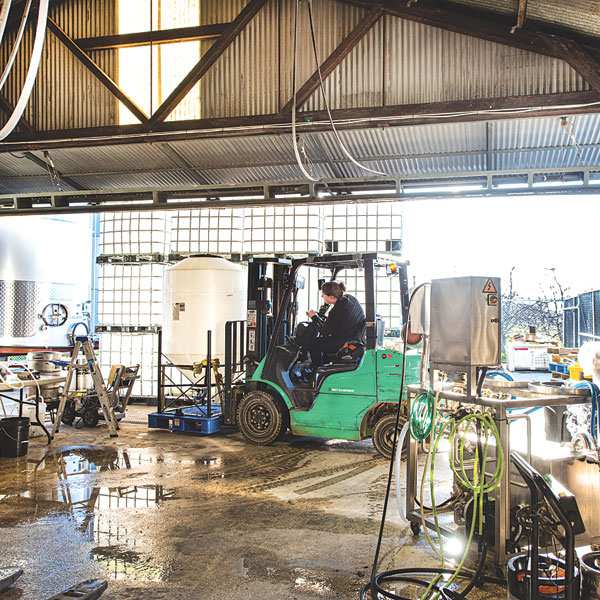
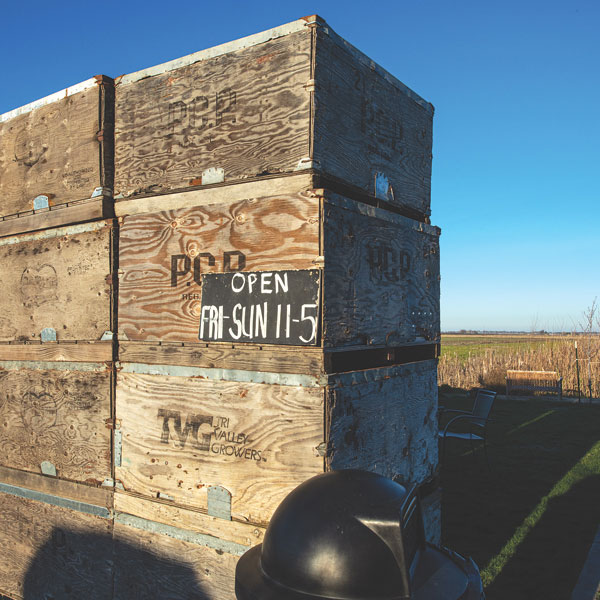
When I ask how we can support cider makers and fruit farmers, she mentions the pressures on farmers to bring quality products to market at reasonable prices. The cost of farmworkers and the desire to pay them living wages while delivering products at prices customers accept is a challenge.
Cider is classified as a wine, sparkling and otherwise, in California. It’s taxed accordingly. This creates a financial challenge as retail cider sells far below the price of sparkling wine.
If cider had its own category for taxes, fees and labor, companies such as Hemly could continue to thrive and treat employees to improved wages without struggling to stay in business.
Hemly’s plans include helping other local farms. She wants to “see a resurgence in apple growers in California, and to support other organic apple growers to increase their volume.”
Many apple growers left California due to financial pressures. Hemly holds as firm as the farm’s tree roots in delta peat.
Find Hemly Cider at Sacramento and Davis food co-ops, Raley’s, Nugget Markets, Trader Joe’s, Whole Foods, BevMo and Total Wine & More.
Gabrielle Myers can be reached at gabriellemyers11@gmail.com. Her latest book of poetry, “Too Many Seeds,” can be ordered from fishinglinepress.com. Follow us on Facebook, Twitter and Instagram: @insidesacramento.




